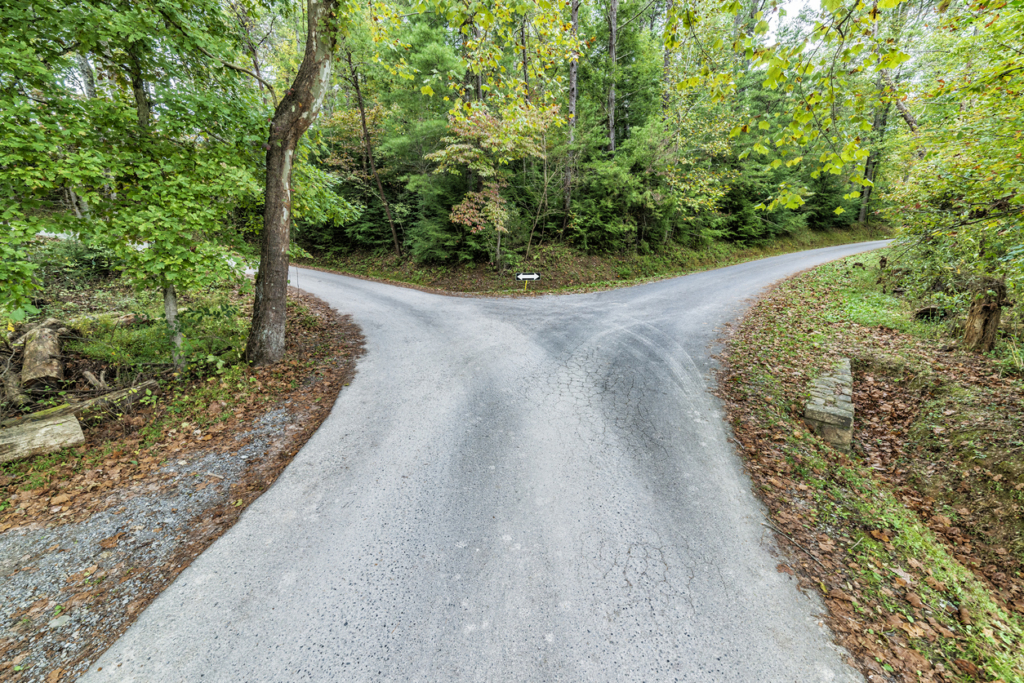Let’s build a foundation that supports great learning in today’s environment, with tomorrow in mind, and throw out the baggage that no longer is most effective for the students you serve.
Grant Lichtman, Author and Education Consultant
Over the last few weeks, I have found myself participating in jam-packed Zoom chats with diverse, multi-generational cohorts of enthusiastic education professionals who are hopeful that, with this enormous COVID-19 kick in the pants, we will see nationwide demand for major changes in how we educate the current and future generations of young people. Changes that address the inequities of the current system, raise student voices, make access to technology universal, make experiential learning the norm, create authentic assessment frameworks, put an end to over-testing, shift away from teacher-centric lectures, and more.
After spending two decades working to transform learning in various schools and districts across the country, I know the conversations I’m in are not the norm. These conversations are inspiring, but there are many chats I’m not participating in that are equally important.
While some educators chomp at the bit, wondering if this is the moment where things finally change, I know many more are focused on pressing, next-day issues: sharing curriculum tidbits that will work online; crafting policy guidelines for which we have no model; and struggling to ensure equitable learning when some families still don’t have computers and internet at home.
That reality tempers my natural optimism. Will we actually use this unique moment to apply the profound lessons we have been ignoring for decades and change what hasn’t worked in the past and is especially not working now? I really hope so. But, regardless of COVID-19’s potential as a powerful spark, I see at least five major barriers that may prevent this transformational fire from taking hold.
Education Ignores the Nature of Exponential Change
For several decades, the exponential curve of Moore’s Law—that the speed and power of computers doubles about every two years—has been reflected well beyond the bounds of computers and technology. We see similar, radically steep curves in atmospheric carbon dioxide, human population growth, rates of deforestation, use of non-renewable energy resources, global species extinction, concentration of global wealth, and, of course, the spread of viruses in a pandemic.
These trans-global, rapid rates of change have blown past a critical pillar of our society: education. The current crisis has brought a profound prediction, first made by Eric Teller in Thomas Friedman’s Thank You For Being Late, into our daily lives: That most individuals and human organizations simply cannot adapt to changes that happen as rapidly as those described by exponential curves.
And yet, it is the role of education to prepare young people for just that challenge. Our education system has ducked this challenge in the past because we don’t know how to meet it.
There is little evidence that we have the capacity for the system-wide changes that would be needed to align learning goals and outcomes with the exponentially-changing challenges that have become distressingly apparent in the first quintile of the 21st century.
It’s Just Too Uncomfortable
Some educators relish the chance to “do” school differently. In this crisis, between the increase in waivers from testing and curriculum standards and the sheer disruption of “normal” school, they see opportunities for their students to engage in long-term projects, unconstrained by short class periods or outdated textbooks.
Math teachers see a world of learning in virus-growth data sets. English teachers encourage their students to walk, observe, journal, write, and blog—searching internally and externally during this unfamiliar time. Social studies teachers build new units, inviting their students to conduct original research or explore the historical impacts of past pandemics. These teachers are the hard-chargers.
Most schools are populated by about 15% hard-chargers-for-change. The other 85% are either cautious or actively resistant to change. The hard-chargers are begging that schools implement profound lessons learned from this huge disruption, but the other 85% are just trying to get through their days. And, when a life raft of normalcy re-appears on these stormy seas, they are going to grab on with both hands.
Despite some remarkable progress in the last five to seven years, the vast majority of K-12 educators in America have never seen (and often never heard about) what a student-centered, inquiry-based learning experience looks and feels like. And, as I wrote in Thrive, most educators did not wake up one day when they were younger shouting, “I love uncertainty and volatility; I think I will become a teacher!”
Our education system encourages repetition and empowers stasis, and overcoming that inertia may be even more difficult than beating the novel coronavirus.
We Don’t Incentivize Bold, Forward-Looking Leaders
Over the last two decades, American political leadership has become increasingly driven by partisanship, not policy. Policy leaders at all levels of government shrink from tough choices if it costs them votes. We appear collectively unwilling to plan for the future if that future does not comport with our personal or tribal worldview.
As I posted on my blog recently, it was in the cold February of 1943 that untested units of the American Army were soundly defeated by German and Italian forces in the Battle of Kasserine Pass in North Africa, pushed back more than 50 miles and suffering huge casualties. What happened immediately following? The Army took the lessons learned and strove not to repeat their mistakes. Within days, they made changes in leadership, preparation, strategies, and tactical operations. And, General Eisenhower called together his leadership team and started planning the invasion of Sicily.
Particularly in times of crisis, good leaders don’t relive their mistakes. They learn from their experiences in as close to real-time as possible, and they create conditions for their organizations to improve.
Though education is not war, the inequities we encounter have been present for so long that many leaders feel they have real or tacit permission to focus their energy elsewhere. As long as test scores remain high or are rising (regardless if they measure anything that matters), taking the road well-traveled will always be enticing.
Good leaders prepare for the next battle before the current battle is won. Eisenhower did not know and could not predict how or when the battle for North Africa would be won. But, he knew it would, and he knew he could not wait until then to plan the next steps. We don’t know how or when the COVID-19 crisis will wane, and we don’t know exactly what our world will look like when it does. But, we know it will wane; and that it won’t be the last such crisis we face.
Big Systems Have Too Much Inertia, And We Won’t Make Them Smaller
I’ve heard stories of great success in the last two weeks: “We’ve switched over to our distance learning platform; we’re building the airplane as we fly it; we’re struggling but getting better every day.” And, I have heard stories that leave little room for optimism: “We’re not allowed to introduce any new material this year; some of our students don’t have internet at home; we don’t have a learning management system in our school or district.”
An educator in North Carolina reported that one small district was up and running with distance learning in less than a week. Meanwhile, a neighboring district issued orders that teachers could not even mention COVID-19 to their students.
Small districts, single charter schools, and independent schools seem to be weathering the initial challenges better than large districts, which is not a surprise. Unfortunately, large, inertia-heavy districts tend to be in big cities with denser, underserved populations. Of course, these are also the populations suffering the worst impacts of the pandemic.
I have faith that even large districts will improve basic IT capabilities to prepare for future shut-downs. I am much less optimistic that they will significantly challenge the pre-Covid norms and transform any key elements of the basic operating system of education once the immediate crisis has passed.
There is No One Big Answer, and There Never Was
I first used the term “cognitosphere” in about 2008 to describe the rapidly-growing global neuro-network that increasingly connects everyone in the world who has internet access. Others have called this system the “metaverse” or other made-up words to try to describe a system of human connectivity and idea flow that never existed prior to about three decades ago.
Today in America, and multiplied across the rest of the world, many thousands of virtual conversations are connecting millions of education stakeholders sharing countless ideas about an almost infinite number of crisis-related topics. The size, speed, and complexity of this information flow is staggering. Some people want to capture all of this in a bottle. They ask “How can I sort through all of this? What are the best practices? Can someone or some group please pull all of this together in one place?”
The answer is no. The cognitosphere has kicked into high gear for educators. You can’t “focus” it all in a way that makes it “capture-able;” that is not how this system works. There is no one right answer for school transformation, no silver bullet that will shoot out of this crisis and solve really enormous issues like equity, teacher training, and over-testing. The metaverse is not optimized to find and scale a grand unified theory. It is optimized to shift culture and practices over time, but only if we connect at least as vigorously after the crisis passes as we are during the shut-down.
I Could Be Wrong
Might I be wrong? Might the lessons we learn from this crisis actually yield a quantum shift in the worn-out K-12 education system? Yes, but only if a few things happen:
I have kept this conversation at the level of education, but we need to zoom out. Much of what we see within education has contributed to massive ripple effects that have led to this moment and our (lack of) preparedness for it.
We have to correct our appalling lack of foresight. We have collectively known that a pandemic was going to come at some point; we even ran a simulation last year that showed how unprepared we were. Yet, both within education and much more broadly, we did almost nothing to prepare.
The disregard that our nation, other nations, and our education system hold for basic science and forward preparation is shocking. If this crisis results in us taking the realities of exponential change seriously and acknowledging education should be changing at a similar rate, we have a much better chance of making real change happen.
We have to learn from, not just survive, the crisis. I urge educators to do two things at once during this crisis: take care of the day-to-day struggle and keep track of lessons learned in near-real time. If we fail at either, the crisis will have been wasted.
The many books that come from this crisis will be valuable, but not as valuable as the collective curation and sharing, over time, from the teachers and students who, like the soldiers at Kasserine Pass, saw it from the front lines. We must build on-going, powerful, frequent, silo-busting connectivity into and across the education operating system.
Finally, we need to reverse engineer future solutions. Our school system was constructed by social engineers in the mid-19th century to solve problems that are not the same as those we face today. Before defaulting back to comfortable norms, let’s build a foundation that supports great learning in today’s environment, with tomorrow in mind, and throw out the baggage that no longer is most effective for the students you serve. An earthquake just shook your house down; don’t rebuild the same house!

